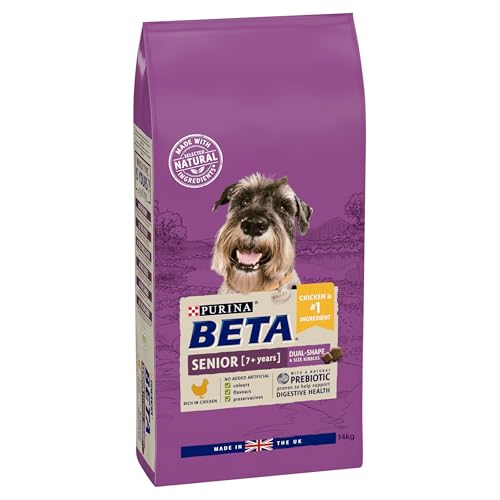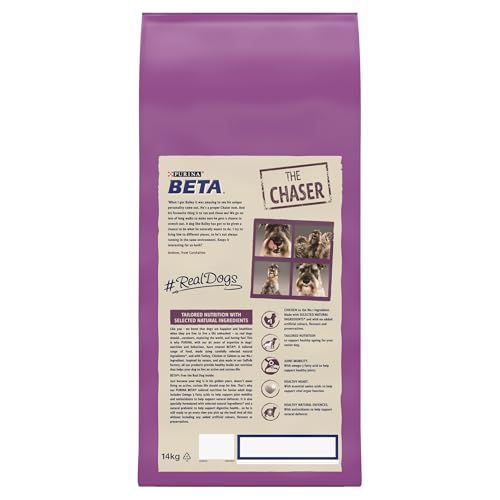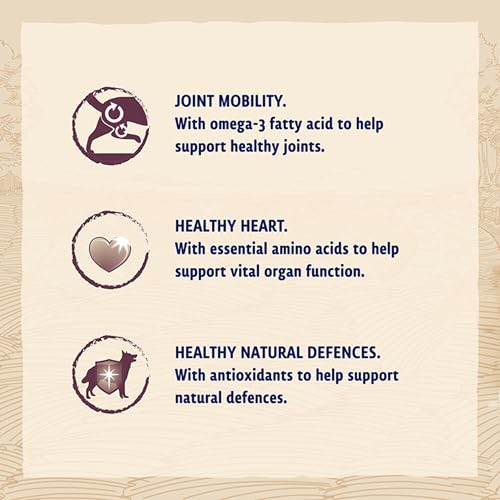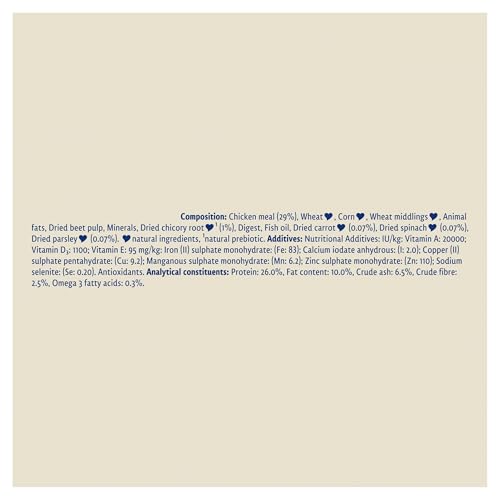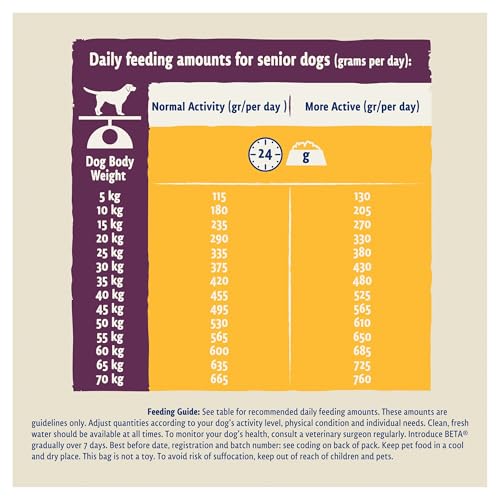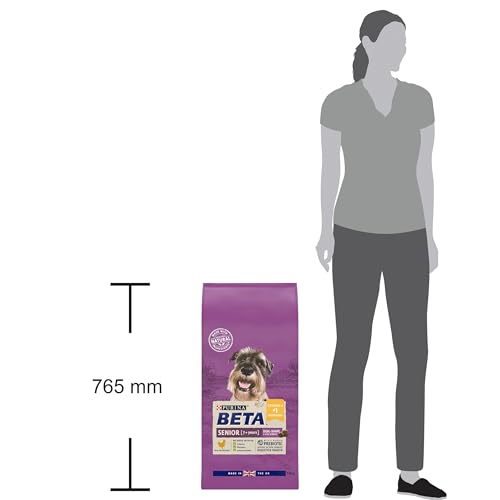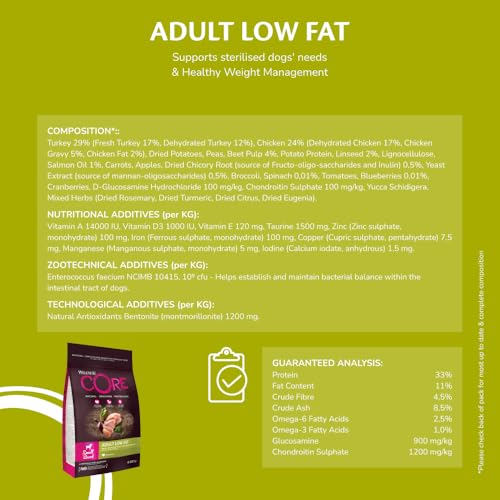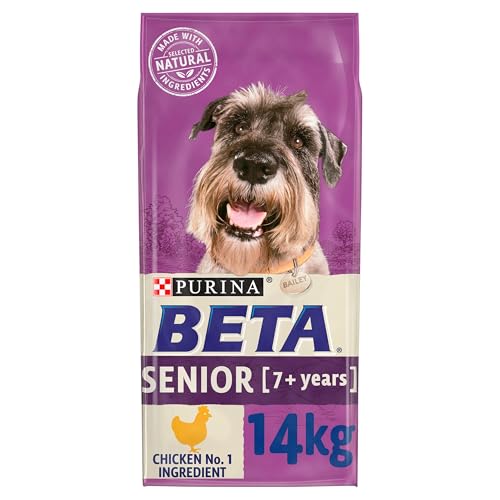


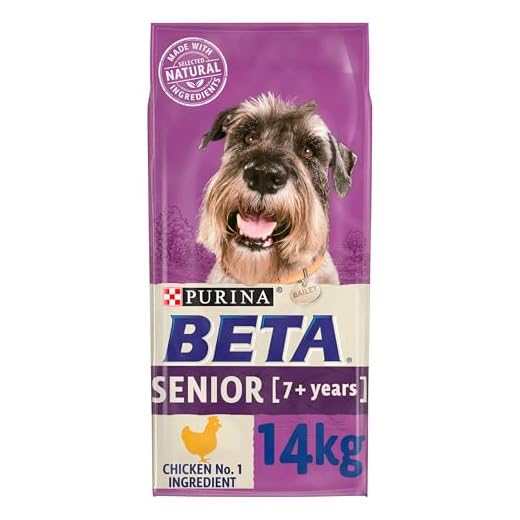

As a devoted pet owner, I understand the unique bond we share with our furry companions, especially when they start to show signs of ageing. My Pomeranian, now a dignified senior, has been by my side for many years, and I’ve seen firsthand how their dietary needs evolve with age. Choosing the right food for an older Pomeranian can make a significant difference in their quality of life, and I want to share what I’ve learned on this journey.
When my Pomeranian began to slow down, I noticed subtle changes in their behaviour and health. They became less energetic, and their once lustrous coat started to dull. It was clear that their nutritional requirements had changed. Like many Pomeranian owners, I was determined to find the best dog food that could support their ageing body, maintain their vitality, and keep them as healthy and happy as possible.
In this article, I’ll delve into the specific nutritional needs of senior Pomeranians and explore the best food options available. I’ll share insights on key ingredients to look for, such as high-quality proteins, essential fatty acids, and joint-supporting supplements. Additionally, I’ll discuss common issues faced by older Pomeranians, like dental problems and weight management, and how the right diet can address these challenges. My goal is to provide practical, informed advice to help you make the best dietary choices for your beloved senior Pomeranian.
Understanding the Nutritional Needs of Senior Pomeranians
As our beloved Pomeranians age, their nutritional requirements evolve. It’s essential to recognise these changes to ensure they maintain a healthy, vibrant life. Older Pomeranians often face challenges such as reduced metabolism, dental issues, and joint problems, all of which require specific dietary adjustments.
When choosing food for a senior Pomeranian, the focus should be on high-quality ingredients that cater to their unique needs. It’s important to provide a balanced diet that supports their overall health, with particular attention to protein levels, fibre content, and essential vitamins and minerals.
Key Nutritional Considerations
- Protein: Older Pomeranians need adequate protein to maintain muscle mass. Opt for easily digestible sources like chicken, turkey, or fish.
- Fibre: Increased fibre helps with digestion and can prevent constipation, which is common in older dogs. Look for foods with added fibre from sources like sweet potatoes or peas.
- Healthy Fats: Omega-3 and Omega-6 fatty acids are crucial for joint health and maintaining a shiny coat. Ingredients like fish oil and flaxseed are excellent additions.
- Low Calories: Senior dogs are generally less active, so a diet lower in calories can help prevent obesity, which can exacerbate joint and mobility issues.
- Joint Supplements: Ingredients such as glucosamine and chondroitin support joint health and can be particularly beneficial for senior Pomeranians prone to arthritis.
- Dental Health: Consider dry kibble or specially designed dental chews that help reduce plaque and tartar buildup, which is critical for maintaining dental health.
Choosing the right food for your senior Pomeranian involves understanding these nutritional needs and selecting products that meet them. Consulting with your veterinarian can provide additional personalised recommendations to keep your furry friend healthy and happy in their golden years.
Key Ingredients to Seek in Senior Pomeranian Dog Food
As my Pomeranian ages, I’ve realised that his nutritional needs have evolved significantly. Ensuring he gets the right food is paramount to maintaining his health and vitality in his senior years. Through careful research and consultation with my vet, I’ve identified several crucial ingredients that I always look for in his dog food.
The right combination of ingredients can help manage age-related issues such as joint pain, reduced energy levels, and digestive sensitivities. Below, I share the essential components I believe every owner should consider when selecting food for their older Pomeranian.
Essential Ingredients for Senior Pomeranian Nutrition
- High-Quality Protein: Lean proteins such as chicken, turkey, or fish provide the necessary building blocks for maintaining muscle mass. As Pomeranians age, their muscle tone can deteriorate, so ensuring their diet includes a substantial amount of protein helps support their muscle health.
- Omega Fatty Acids: Ingredients rich in omega-3 and omega-6 fatty acids, like fish oil and flaxseed, are crucial. These nutrients help keep my Pomeranian’s coat shiny and healthy while also supporting joint health, which is particularly important for small breeds prone to arthritis.
- Fibre: Older dogs often experience digestive issues. Ingredients such as sweet potatoes, pumpkin, and beet pulp are excellent sources of fibre that aid in digestion and help maintain regular bowel movements.
- Antioxidants: Vitamins E and C, as well as ingredients like blueberries and spinach, are packed with antioxidants. These help boost the immune system and combat the effects of ageing, keeping my Pomeranian feeling vibrant and energetic.
- Glucosamine and Chondroitin: These compounds are essential for joint health. They help reduce pain and improve mobility, allowing my senior Pomeranian to stay active and playful longer.
In addition to these, I also pay attention to the overall ingredient quality and the absence of artificial additives. Choosing food with natural preservatives and minimal fillers ensures my Pomeranian gets the most nutritious and health-supportive diet possible. By focusing on these key ingredients, I can provide my ageing companion with the nourishment he needs to thrive in his golden years.
Grain-Free vs. Grain-Inclusive Diets for Senior Pomeranians
Choosing the right diet for my ageing Pomeranian can be challenging, especially when faced with the grain-free versus grain-inclusive debate. As my furry friend gets older, their dietary needs evolve, requiring careful consideration of ingredients to ensure they remain healthy and energetic.
There is a lot of discussion among pet owners and veterinarians about the benefits and drawbacks of both grain-free and grain-inclusive diets. Each type has its own set of advantages and potential concerns, making it essential to understand how they can affect a senior Pomeranian’s health.
Grain-Free Diets
Grain-free dog foods exclude common grains such as wheat, corn, and rice, often substituting them with alternative carbohydrate sources like potatoes, peas, or lentils. For my senior Pomeranian, a grain-free diet can help if they have specific allergies or sensitivities to grains. Additionally, grain-free options are generally high in protein and low in carbohydrates, which can support lean muscle mass and overall energy levels.
However, I need to be cautious with grain-free diets due to recent studies suggesting a potential link between these diets and heart disease, particularly dilated cardiomyopathy (DCM). While this link is still being studied, it’s essential to consult with my vet to ensure my Pomeranian’s heart health isn’t compromised.
Grain-Inclusive Diets
On the other hand, grain-inclusive diets incorporate grains that can be a good source of fibre and essential nutrients. For my older Pomeranian, grains like brown rice and oats can aid in digestion and provide steady energy throughout the day. These diets are often well-balanced and meet the nutritional needs without the potential risks associated with grain-free options.
It’s worth noting that grains are not inherently bad for dogs unless they have specific allergies. In fact, many dogs thrive on a diet that includes high-quality grains, experiencing fewer digestive issues and maintaining a healthy weight. Therefore, a grain-inclusive diet might be a more balanced and safer choice for my senior Pomeranian.
Ultimately, the decision between grain-free and grain-inclusive diets for my ageing Pomeranian requires careful consideration and guidance from a veterinary professional. By understanding the specific needs of my pet and the potential impacts of each diet type, I can make an informed choice that promotes their health and longevity.
Wet vs. Dry Dog Food: Which Is Better for Older Pomeranians?
As my Pomeranian has aged, I’ve become increasingly mindful of what I feed him. The debate between wet and dry food often surfaces, especially when considering the unique needs of older Pomeranians. Both types of food have their advantages and disadvantages, and understanding these can help make an informed decision for your furry companion.
First, let’s discuss the benefits of wet dog food. One of the primary advantages of wet food is its high moisture content, which can be particularly beneficial for older Pomeranians. As dogs age, they can become more prone to dehydration, and wet food can help ensure they stay properly hydrated. Additionally, wet food tends to be more palatable, making it easier for senior dogs with decreased appetite or dental issues to eat and enjoy their meals.
Comparing Wet and Dry Dog Food for Older Pomeranians
On the other hand, dry dog food has its own set of benefits. One of the main advantages is its convenience and longer shelf life compared to wet food. Dry food is also often more cost-effective, which can be a consideration for long-term feeding. Furthermore, the crunchy texture of dry kibble can help in maintaining dental health by reducing plaque and tartar buildup, although this benefit can be less significant for Pomeranians with existing dental problems.
When deciding between wet and dry food, it’s important to consider your Pomeranian’s specific needs. For instance, if your dog has dental issues, missing teeth, or a decreased sense of smell, wet food might be more suitable. Conversely, if your Pomeranian has a healthy set of teeth and enjoys the crunch, dry food could be a better option. Some owners opt for a combination of both, providing the benefits of each type while keeping meals interesting for their pets.
Ultimately, the best choice may vary depending on individual health conditions, preferences, and lifestyle. It’s also worth consulting with a veterinarian to tailor a diet plan that meets all the nutritional requirements of your aging Pomeranian. By carefully considering these factors, you can help ensure your senior Pomeranian remains happy and healthy.
Recommended Brands of Dog Food for Senior Pomeranians
As our beloved Pomeranians age, their dietary needs change. To keep them healthy and energetic in their senior years, it’s crucial to choose the right food tailored for their age and specific health requirements. Through my research and experience with senior Pomeranians, I have found several brands that offer excellent nutrition for our aging furry friends.
When selecting food for an older Pomeranian, it’s essential to consider factors like joint health, digestive support, and maintaining an ideal weight. The brands listed below have been chosen based on their high-quality ingredients, positive reviews from dog owners, and recommendations from veterinarians.
High-Quality Dog Food Brands for Senior Pomeranians
-
Royal Canin Size Health Nutrition Small Aging 12+
This brand is specifically formulated for small breed dogs aged 12 years and older. It contains antioxidants to support healthy ageing, along with EPA, DHA, and a blend of fibres to aid digestion. The kibble is designed to be easily rehydrated, which can be beneficial for older dogs with dental issues.
-
Hill’s Science Diet Adult 7+ Small Paws
Hill’s Science Diet offers a formula tailored for small breed dogs over seven years old. It includes a balanced set of minerals for heart and kidney health, omega-6 fatty acids for a healthy coat, and an antioxidant blend to support the immune system.
-
Blue Buffalo Life Protection Formula Small Breed Senior
This brand uses real meat as the first ingredient and includes whole grains, garden veggies, and fruit. It has glucosamine and chondroitin for joint health, along with essential proteins and carbohydrates to maintain energy levels in senior dogs.
-
Nutro Ultra Small Breed Senior Dry Dog Food
Nutro Ultra provides a mix of high-quality protein from chicken, lamb, and salmon, combined with a blend of 15 superfoods like coconut, chia, and kale. This formula supports healthy ageing, sharp vision, and overall vitality in senior Pomeranians.
-
Merrick Lil’ Plates Grain-Free Senior Recipe
Merrick’s grain-free option is excellent for senior dogs with food sensitivities. It features deboned chicken as the primary ingredient and includes probiotics and prebiotic fibre for healthy digestion. Additionally, it has L-carnitine to support a healthy metabolism and energy levels.
Homemade Dog Food Recipes for Aging Pomeranians
As my Pomeranian entered his golden years, I realised that his nutritional needs had changed. The vibrant, energetic dog I once knew required a diet that could support his ageing body and maintain his overall health. I decided to take matters into my own hands and prepare his meals at home, ensuring each ingredient catered to his specific needs.
Creating homemade dog food allowed me to tailor the recipes to my Pomeranian’s dietary requirements. It also gave me peace of mind, knowing exactly what went into his food. Here are some of the recipes that have worked wonders for my senior Pomeranian, keeping him healthy and happy.
Nutrient-Rich Chicken and Rice Recipe
This recipe is easy to prepare and provides a balanced mix of proteins and carbohydrates. It’s perfect for supporting muscle maintenance and providing energy.
Ingredients:
- 2 cups of cooked white rice
- 1 pound of ground chicken
- 1/2 cup of chopped carrots
- 1/2 cup of chopped spinach
- 1 tablespoon of olive oil
Instructions:
- Cook the white rice according to the package instructions and set aside.
- In a large pan, heat the olive oil and add the ground chicken. Cook until fully browned.
- Add the chopped carrots and spinach to the pan and cook until tender.
- Mix the cooked rice into the pan and stir until all ingredients are well combined.
- Allow the mixture to cool before serving it to your Pomeranian.
Salmon and Sweet Potato Delight
Salmon is an excellent source of omega-3 fatty acids, which are beneficial for joint health and coat condition. Combined with sweet potatoes, this recipe is both nutritious and delicious.
Ingredients:
- 1 pound of salmon fillet (boneless and skinless)
- 1 large sweet potato, peeled and cubed
- 1/2 cup of green beans, chopped
- 1/2 cup of peas
- 1 tablespoon of coconut oil
Instructions:
- Preheat your oven to 375°F (190°C).
- Place the salmon on a baking sheet and bake for 20-25 minutes until fully cooked.
- Boil the sweet potato cubes until they are soft and mashable.
- In a large bowl, combine the baked salmon, mashed sweet potato, green beans, and peas.
- Add the coconut oil and mix thoroughly.
- Allow the mixture to cool before serving it to your Pomeranian.
By preparing these meals at home, I’ve noticed a significant improvement in my Pomeranian’s energy levels and overall well-being. It’s heartening to see him thrive on a diet that’s made with love and care. If you’re considering homemade food for your ageing Pomeranian, these recipes are a great place to start.
How to Transition Your Pomeranian to Senior Dog Food
As my beloved Pomeranian began to show signs of ageing, I realised it was time to switch her diet to better suit her new nutritional needs. Senior dogs have different requirements compared to younger ones, and transitioning to the right food can greatly enhance their quality of life. I want to share some practical steps and tips that helped me make this change smoothly and effectively.
Changing your Pomeranian’s diet can be a delicate process, as sudden shifts may lead to digestive issues. To ensure a smooth transition, it’s essential to follow a gradual approach, allowing your pet to adjust without any discomfort. Here’s how I managed this transition with my furry friend.
Steps for a Smooth Transition
- Consult Your Vet: Before making any dietary changes, I spoke with my vet to ensure that the senior dog food I chose was suitable for my Pomeranian’s specific health needs. This step is crucial as it provides tailored advice based on your pet’s health status.
- Gradual Introduction: I started by mixing a small amount of the new senior dog food with her regular food. Over the course of a week, I gradually increased the proportion of the new food while decreasing the old one. This helped her digestive system adapt slowly and reduced the risk of stomach upset.
- Monitor for Reactions: Throughout the transition, I kept a close eye on her behaviour and stool. Any signs of digestive discomfort, such as diarrhoea or vomiting, prompted me to slow down the process. Patience is key here, as every dog adjusts at their own pace.
- Maintain Consistency: To make the change less stressful, I kept her feeding schedule consistent. Feeding her at the same times each day helped establish a routine, making the new food feel like a normal part of her day.
- Hydration is Crucial: Ensuring my Pomeranian stayed well-hydrated was also a priority. Senior dogs may have different hydration needs, so I always provided fresh water and monitored her intake.
Transitioning to senior dog food is a significant step in caring for an ageing Pomeranian. With careful planning and patience, you can help your furry friend enjoy their golden years with the right nutrition. Remember, every dog is unique, so it’s important to tailor these steps to your pet’s specific needs and always consult with your veterinarian for the best advice.
Common Health Issues in Old Pomeranians and How Diet Can Help
As Pomeranians age, they may face several common health issues that require careful attention and management. These issues can range from dental problems to joint pain and obesity. However, a well-balanced diet tailored to their specific needs can play a crucial role in managing these health concerns and improving their overall well-being.
In their senior years, Pomeranians are prone to dental issues such as tooth decay, gum disease, and tooth loss. These problems can lead to discomfort, difficulty eating, and even systemic health issues if left untreated. Providing them with a diet rich in dental-friendly nutrients and appropriate chew toys can help promote oral health and prevent dental problems.
Summary:
Ensuring your old Pomeranian receives proper nutrition is essential for managing common health issues associated with aging. A diet tailored to their needs can help prevent dental problems, maintain a healthy weight, support joint health, and boost their overall quality of life. Consult with your veterinarian to develop a diet plan that addresses your Pomeranian’s specific health concerns and dietary requirements.
Best Dog Food For Old Pomeranian
Features
| Size | 1.02 kg (Pack of 4) |
Features
| Part Number | 10753 |
| Model | 10753 |
| Size | 10 kg (Pack of 1) |
| Language | French |
Features
| Part Number | HARRGFSS-12 |
| Model | HARRGFSS-12 |
| Release Date | 2024-01-01T00:00:01Z |
| Size | 12 kg (Pack of 1) |
| Price history for Harringtons Superfoods Grain Free Dog Food | |
|---|---|
|
Latest updates:
|
|
Features
| Part Number | 12231689 |
| Model | 12531980 |
| Color | transparent |
| Release Date | 2014-05-23T00:00:01Z |
| Size | 1 count (Pack of 1) |
Features
| Part Number | 10813 |
| Model | 10813 |
| Size | 1 count (Pack of 1) |
| Language | French |
Features
| Part Number | 4718438 |
| Model | 3182550758314 |
| Release Date | 2012-12-04T00:00:01Z |
| Size | 3.5 kg (Pack of 1) |
| Language | Italian |
| Price history for ROYAL CANIN Hypoallergenic Small Dog Food | |
|---|---|
|
Latest updates:
|
|
Features
| Is Adult Product | |
| Release Date | 2025-05-17T00:00:01Z |
| Language | English |
| Number Of Pages | 213 |
| Publication Date | 2025-05-17T00:00:01Z |
Q&A:
What kind of nutrients should I look for in dog food for my old Pomeranian?
Look for dog foods that are rich in protein, healthy fats, vitamins, and minerals, specifically formulated for senior dogs.
Are there any specific ingredients I should avoid in dog food for my aging Pomeranian?
Avoid dog foods with excessive fillers, artificial preservatives, and additives. Opt for natural and easily digestible ingredients.
How often should I feed my old Pomeranian?
Feed your senior Pomeranian small, frequent meals throughout the day to support digestion and maintain energy levels.
Should I consult with my vet before changing my old Pomeranian’s diet?
Yes, it’s always advisable to consult with your vet before making any significant changes to your dog’s diet, especially in their senior years.
Are there any special dietary considerations for older Pomeranians with health issues?
Absolutely, older Pomeranians with health issues may require specific dietary adjustments. Your vet can provide tailored recommendations based on your dog’s individual needs.























